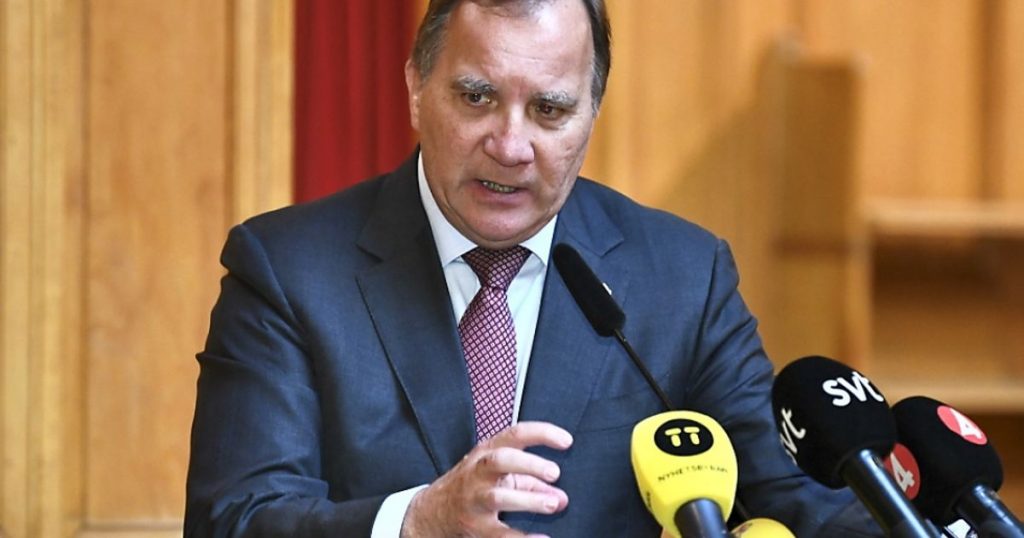Social Democrat Stefan Lofven is once again Sweden’s prime minister. Nine days after his resignation due to a vote of no confidence, he won the necessary support in Parliament on Wednesday. It was enough for a 63-year-old man not to vote against him in the Reichstag in Stockholm: 116 deputies voted in favour, and 60 abstained. 173 spoke against him. Two votes of “no” were necessary in the 349-seat parliament to prevent Leuven’s return.
“The Reichstag has given me the confidence to continue to lead Sweden,” the 63-year-old said after the vote. “It’s a lot of confidence. I take on the task with determination and respect.” At the same time, he made clear that political problems are far from being on the table. He said that the situation in the Reichstag was still very difficult, there was no doubt about it.
Leuven now wants to rely on a red and green minority government again. He is expected to present his government on Friday. His previous government was ousted in a vote of no confidence in parliament two weeks ago in the midst of a dispute with the Left Party over fixed rental rates for new buildings. It was the first time that a Swedish prime minister had been overthrown by such a vote.
Lofven then had a week to choose between resigning and re-election. He submitted his resignation early last week, after which his government became an interim government and the search for a new government began. The head of the Moderates, Ulf Christerson, was given the first opportunity to form a government. He gave up before the deadline – then it was Lovin’s turn to get the necessary majority.
This is again very weak: together, red and green occupy only 116 of the 349 parliamentary seats – the 116 who now voted for Leuven. He only has a slim majority of 175 votes in total with the help of the Left and Center Party, who abstained in order to pass Leuven. The problem: the center refuses to allow the left party to influence. The Green Party, on the other hand, does not like the demands for reform that the Center has tied its support to Leuven.
Early in the budget negotiations in the fall, Leuven should encounter new problems. The next parliamentary elections are scheduled for September 2022 in Sweden.
The ex-unionist Leuven has been in power for seven years. However, with the rise of the right-wing populist Swedish Democratic Party, political instability grew. After the parliamentary elections in 2018, after months of negotiations, Löfven was forced to enter into an agreement with the Center and the Liberals in order to secure the minority red-green government in Parliament. The two parties actually belonged to the bourgeois bloc, but they supported Leuven in exchange for concessions. Löfven also relied on the votes of the left that brought him down in the no-confidence vote two weeks ago.
Leuven must now continue to present himself as a very willing negotiator in order to remain a capable political action. Agreement with the Center Party and the Liberals is a thing of the past, and the Center refuses to allow the Left Party to influence. The Green Party, on the other hand, does not like the demands for reform that the Center has tied its support to Leuven. As early as the negotiations on the next state budget in the fall, the old and new prime ministers are likely to face new problems. Sweden’s next parliamentary elections are scheduled for September 2022.

“Food practitioner. Bacon guru. Infuriatingly humble zombie enthusiast. Total student.”







More Stories
Gulf of Oman: Iran announces the confiscation of a cargo ship that violates the rules
Mayor: Heat pumps and new residents lead to power outages
The cold front brings thunderstorms, heavy rain and even snow :: wetter.at